Your Cart is Empty
Free shipping on Orders $79+
Free shipping on Orders $79+
Explore

Should I Try Intermittent Fasting? By Dr. Jason Dave, ND
March 10, 2021 6 min read
Doctor’s Note
A new series featuring leading physicians who love plants as much as we do!
The concept of fasting, or abstaining from food for set periods of time, is not new- it’s been a practice that has been part of various religions and cultures around the globe since ancient times.
Recently though, a trend that has been popular among health-conscious individuals is intermittent fasting (IF). This type of fasting involves a structured method that limits eating to certain hours of the day. It’s not really a diet, but more of an eating pattern.
Although there are many different versions of IF, some more popular versions include:
- 16:8 diet (8-hour window to eat, followed by 16 hours of fasting each day)
- 14:10 diet (10-hour window to eat, followed by 14 hours of fasting each day)
- 12:12 diet (12-hour window to eat, followed by 12 hours of fasting each day)
The main concept behind IF is that by abstaining from food for a long period of time (usually for at least 12 hours), it helps to put your body into a state of ketosis- or prompting your body to burn fat for energy rather than carbohydrates. It is thought that this mechanism is how IF exerts a variety of health benefits such as weight loss, improved blood sugar control, and reduced inflammation, among others.
What does the science say so far about intermittent fasting?
Some experts believe that it doesn't matter when you eat or when you don't eat, but what matters is how much you eat. In other words, IF does not take into account how much you eat and how many calories you consume during the window period of eating. Some people may still eat over-processed junk foods laden with sugar and bad fats during the window period of eating, but then think that just by fasting right after, it will negate all the junk food they ate – well it just doesn’t work that way! Frankly, it is more important to focus on thequantity andquality of the food you are eating, as opposed to when or how often you are consuming it.
It is important to understand that IF is still somewhat controversial, and that the science (and studies) looking at the health benefits of IF are still in its early stages. In addition, most studies on IF have a small number of participants or have not been done long-term to examine how it affects people over time. Short-term studies have found that IF may incur benefit in certain people, such as:
1. Weight loss
Refined carbohydrates such as refined grains (e.g., white rice and flours) are quickly broken down into sugar, which our cells use for energy. If our cells don’t utilize all of it, we store it in our fat cells (as fat). Insulin, hormone secreted by our pancreas, helps sugar enter our cells- it brings sugar into our fat cells and keeps it there. When we fast between meals, our insulin levels will go down, which causes our fat cells to release their stored sugar so it can be used as an energy source. By lowering insulin levels, it helps us lose weight. The concept of IF is to lower insulin far enough (and long enough) to help burn off stored fat.
Recent research has found that using IF for weight loss may have some benefits in the short term. A 2019 review published in the New England Journal of Medicine found that in short-term studies, IF may be equally effective as calorie restriction for weight loss in overweight and obese adults.
2. Improved blood sugar control
Restricting the number of hours you eat, such as during IF, can directly affect your blood sugar and insulin levels. When you fast during a certain period of time during IF, your body gets to take a break from producing insulin- causinginsulin levels to go down. In one small study of only 15 participants, researchers found that IFimproved glycemic, or blood sugar responses in those with a higher predisposition for developing diabetes, regardless of how much food they ate. The study was short-term (over the course of only two seven-day test periods). The participants followed their usual diet but limited their daily food intake to a 9-hour time period. While short-term small studies (such as this one) show some promise for improving blood sugar, more larger studies over a longer duration is needed before any conclusions can be made.
3. Reduced inflammation
Inflammation is defined as the immune system's natural response to infection or injury. While inflammation in small doses is necessary to help you heal in acute circumstances, such as spraining your ankle or getting a cut, chronic long-term inflammation (triggered by toxins in food or excess fat cells in our body) has negative consequences since it has been linked to chronic illnesses such as cardiovascular disease, cancer, and diabetes. Some small studies have found that IF helps reduce widespread chronic inflammation in the body, which may help lower your risk of developing certain chronic illnesses.
Who should not use IF?
Although IF may be beneficial for certain healthy people in the short-term, it is certainly not recommended for everyone. Long-term benefits, safety, and risks of IF have not been studied in those with certain pre-existing illnesses. If you are considering IF, make sure you are under the close supervision of a physician and have a conversation about it with him or her first, particularly if you have any of the following:
- Blood sugar disorders (e.g., diabetes or hypoglycemia)
- Eating disorders (e.g., anorexia or bulimia)
- Gastrointestinal disorders (e.g., gastroesphageal reflux disease)
- High blood pressure or heart disease
- Liver or kidney disorders
- Pregnant or breastfeeding
- Underweight
- Elderly
- Under 18 years old
- Any other chronic illness
Dr. Dave’s Intermittent Fasting Protocol
If you are healthy and your physician gives you the green light to incorporate IF into your regimen (while being supervised by him or her), you can use the following suggested protocol while on the program. No matter which version of the IF you decide to try, a great way to get all the nutrients you need while maintaining your energy levels and supporting gut health is with theEverything You Need Bundle.
EachEVERYTHING bundle contains:
Step 1: Vegan Vanilla Proteini | Take this first during the eating window period (before meals)
Cut your cravings, nourish your body and feel satisfied all day with clean, organic plant-based protein from 10 superfoods like peas, hemp, maca, sacha inchi and sprouts that come together as nature’s perfect protein.
Step 2: Pineapple Chia Cleanse | Take this last during the eating window period (right before the fasting period)
Our unique blend of 15 superfood fibers act as your daily mini-cleanse to combat bloating and keep cravings under control. Activated fibers gently remove the waste from unhealthy eating and supports the healthy elimination of toxins.
Step 3: Organic Pressed Greens | Take anytime during the fasting period (if desired, can combine with Revive Beets + Roots)
Energize, detox and destress with nutrients from over 20 superfoods specifically formulated for optimal daily health and antioxidant support.
Step 4: Revive Beets + Roots | Take anytime during the fasting period (if desired, can combine with Organic Pressed Greens)
Feel the boost of energy from our freshly pressed organic beets, turmeric, ginger and superfood roots. Naturally boosts your body’s energy and performance with no jitters or crash.
Here also a few delicious smoothies you can try with all of the juices blended together:
By Dr. Jason Dave, ND
Doctor’s Note
A new series featuring leading physicians who love plants as much as we do!
For more SMART lifestyle tips like this, visit our other blogs at www.smartpressedjuice.com and follow us on Instagram or like us on Facebook. You can also visit our shop to stock up on our delicious juices.
Statements made on this website have not been evaluated by the U.S. Food and Drug Administration. Information provided by this website or this company is not a substitute for direct, individual medical treatment or advice. It is the responsibility of you and your healthcare providers to make all decisions regarding your health. We recommend that you consult with your healthcare providers regarding the diagnosis and treatment of any disease or condition. Products sold on this website are not intended to diagnose, treat, cure, or prevent any disease.
{"themeColor":"#574CD5","iconColor":"#574CD5","showLogo":true,"topBottomPosition":10,"rightLeftPosition":10,"iconSize":"small","iconCustomSize":64,"position":"bottom-left"}



